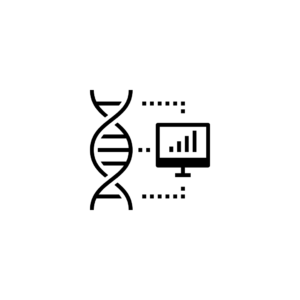Description
A Master of Science in Bioinformatics (M.Sc. in Bioinformatics) is a graduate program that integrates biology, computer science, and information technology to analyze and interpret biological data. This interdisciplinary field plays a crucial role in genomics, proteomics, and systems biology, utilizing computational tools and methods to address biological challenges and advance research in genomics and medicinal development.
Curriculum Overview
The curriculum for an M.Sc. in Bioinformatics generally includes a combination of core courses, electives, and a research project or thesis. Below are some common subjects and areas of study within the program:
Introduction to Bioinformatics:
Overview of bioinformatics concepts, history, and applications in biology and medicine.
Biological Databases:
Study of various biological databases and data repositories, including NCBI, EMBL, and UniProt, and methods for retrieving and managing biological data.
Computational Biology:
Exploration of computational methods used to model biological systems, analyze sequences, and predict protein structure and function.
Genomics:
Principles of genomic data analysis, including next-generation sequencing technologies and genome assembly methods.
Proteomics:
Techniques and tools for studying protein structures, functions, interactions, and mass spectrometry data analysis.
Data Mining and Machine Learning:
Applications of statistical and machine learning techniques to analyze complex biological data and derive meaningful insights.
Bioinformatics Algorithms:
Study of algorithms and computational methods for sequence alignment, phylogenetics, and protein structure prediction.
Systems Biology:
Understanding the dynamic interactions within biological systems, focusing on modeling and simulating biological processes.
Statistical Methods in Bioinformatics:
Application of statistical techniques to analyze biological data, including hypothesis testing, regression models, and multivariate analysis.
Programming for Bioinformatics:
Proficiency in programming languages commonly used in bioinformatics, such as Python, R, or Perl, along with scripting and tool development.
Ethics and Regulations in Bioinformatics:
Examination of ethical issues, data privacy, and regulatory frameworks related to biological data handling and applications.
Capstone Project or Thesis:
Conducting independent research or a practical project that applies bioinformatics tools and methods to a specific biological problem.
Career Opportunities
Graduates with an M.Sc. in Bioinformatics can pursue diverse career paths in various sectors, including academia, healthcare, pharmaceuticals, and biotechnology. Some potential job roles include:
Bioinformatics Scientist/Analyst: Analyzing biological data to support research and product development in areas such as genomics and drug discovery.
Computational Biologist: Applying computational techniques to confront biological questions, including model building and data interpretation.
Genetic Data Analyst: Evaluating genomic and genetic data for research studies or clinical applications, often helping in personalized medicine.
Clinical Bioinformatician: Working in clinical settings to assist with genetic testing and analysis, guiding patient care based on genetic information.
Research Scientist in Genomics/Proteomics: Conducting research projects that require bioinformatics expertise to analyze biological data sets.
Software Developer for Bioinformatics Tools: Developing software solutions to streamline biological data analysis, improve database management, or enhance visualization tools.
Pharmaceutical/Healthcare Consultant: Advising organizations on the implementation of bioinformatics strategies for drug development or patient care.
Regulatory Affairs Specialist: Ensuring compliance with regulations governing the use of biological data and bioinformatics applications in research and industry.
Data Scientist: Utilizing data mining and machine learning techniques to extract insights from large biological datasets.
Academia/Teaching: Pursuing a career in education, teaching bioinformatics or related subjects at universities or institutions.
Further Education
Graduates may choose to pursue a Ph.D. in Bioinformatics, Computational Biology, or related fields if interested in research or academic positions. Additionally, certifications in specialized areas like genomics, data science, or specific bioinformatics software tools can enhance career prospects.
If you have further questions about the curriculum, career paths, or other aspects of a Master of Science in Bioinformatics, feel free to ask!









